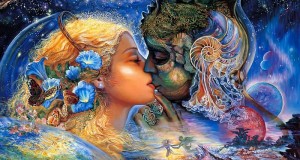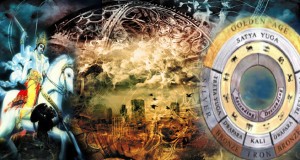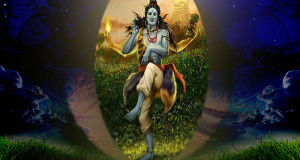The difference of outlook between polytheism and monotheism boils down to being open and being closed. Because religions have a hold on people’s imaginations and their sense of right and wrong, religious outlooks define societies. Modern Hindus, instead of being apologetic about the polytheism inherent in their tradition, should seek to embrace it Since religiosity [...]
 latest updates
latest updates
- Video : Hitler Incarnation of Vishnu According to Hindus Claim GB ‘Hinduphobic’ News
- The New Cool: Mock a Brahmin, Bash a Hindu, Roast a Vegan, and Cancel Mother Earth
- Video : Right Wing Christian Fundo Talking About Demonic Yoga
- Carry/Curry On With Hinduphobia Starring Catherine Blaiklock BP
- Video : UK Identified As Major Hub For Islamist Extremist Content:
- Video : Astronaut Sunita Williams Talks About Her Hindu Heritage
- Video : London Fire Brigade Hosting A Holi Festival Party Event
- Video : Most ‘BrahminPhobia Is Also Spread By Hindus
- Video : US Spy Chief’s ‘Islamic Caliphate’ Remark On Bangladesh Crisis
- Video : Palestinian Muslim Preacher Calls For The Genocide Of Hindus As Human Sacrifice For Allah
- Video : US DNI Tulsi Gabbard: ‘Krishna’s Teachings In Bhagavad Gita Give Me Strength’ As US Intel Chief
- Video : As FBI Chief Wishes Everyone Happy Holi, Right Wing Hinduphobes Go Bonkers
- Video : Chhatrapati Shivaji Maharaj Talk by Sanatan Youth Society
- Video : An Indian Train Employee Throwing Rubbish Out Of Running Train
- First Ancient Greek Temple in 1,700 Years Opens in Arcadia
Understanding hinduism
Kama Deva – The God of Divine Love
The Eros of the Greek, the Cupid of the Romans is known as Kama Deva in Hinduism. Kama Deva is represented as a handsome, winged young man who wields a bow and arrow.. His lethal weapon of love is a bow made of sugarcane with a string of honeybees and the arrows are adorned with [...]
The Kama Sutra : Beyond the Sex
Many people have heard about the Kama sutra, but generally the ideas that circulate are rather distorted, vague and confused by ignorance and prejudice. [...]
Narasimha Avatar
During the Satya Yuga, Sage Kashyap and one of his wife Diti had two sons – Hiranyaksha and Hiranyakasipu. Hiranyaksha troubled the humans and the Devas alike. The humans and the Devas unable to take it any more prayed to Lord Vishnu to protect them. Lord Vishnu being the Preserver incarnated as a Boar to [...]
Secrets of the Yugas or World-Ages
Who knows now and who can declare the paths that lead to the God; only their lower habitations are visible, who dwell in regions of supreme mystery. Rig Veda III.54.5 According to the Vedic seers, life on Earth is under the rule of vast cosmic forces that originate from the stars. All that happens locally [...]
The Shiva Linga
The sexual symbolism of Tantra, like the subject of sexuality in general, has always engaged the human mind. The modern mind seems to be obsessed with it as well. Many people into Tantra, as well as most of the scholars who write on it, seem unable to move beyond the physical suggestions of these symbols [...]
The Mechanics of Karma
Karma as destiny and retribution The word karma has entered the vocabulary of all the modern languages and has become a household word, but often its meaning is trivialized and distorted due to cultural superimpositions and lack of proper information. It is generally used with the meaning of “destiny”, and sometimes “retribution” or punishment. In [...]
The Divine Dance of Shiva
Who is Shiva? And what is the meaning of the shivalinga, Shiva’s symbol or icon? Who is Parvati? Why do people go on pilgrimage to places like the Amaranath cave in Kashmir? What is the relationship between Shiva and Vishnu? What is the meaning of Shiva’s dance? In the Vedic way God, or Brahman, is [...]
Brahman is not ‘God’
Let us look at what Hinduism holds to be the Absolute. The ultimate goal and Absolute of Hinduism is termed “Brahman” in Sanskrit. The word comes from the Sanskrit verb root brh, meaning “to grow”. Etymologically, the term means “that which grows” (brhati) and “which causes to grow” (brhmayati). Brahman, as understood by the scriptures [...]
Vasanta Navaratri : Nine Divine Spring Nights
Navratri (“nava” + “ratri”) literally means “nine nights”. This ritual is observed twice a year, in spring and in autumn. “Vasant Navratri” is nine days of fast and worship that Hindus undertake during spring every year. Vasant Navratri is also known as “Ram Navratri” because Ram Navami falls on the ninth day of Chaitra month. [...]




































